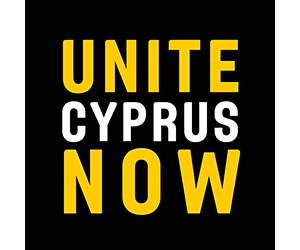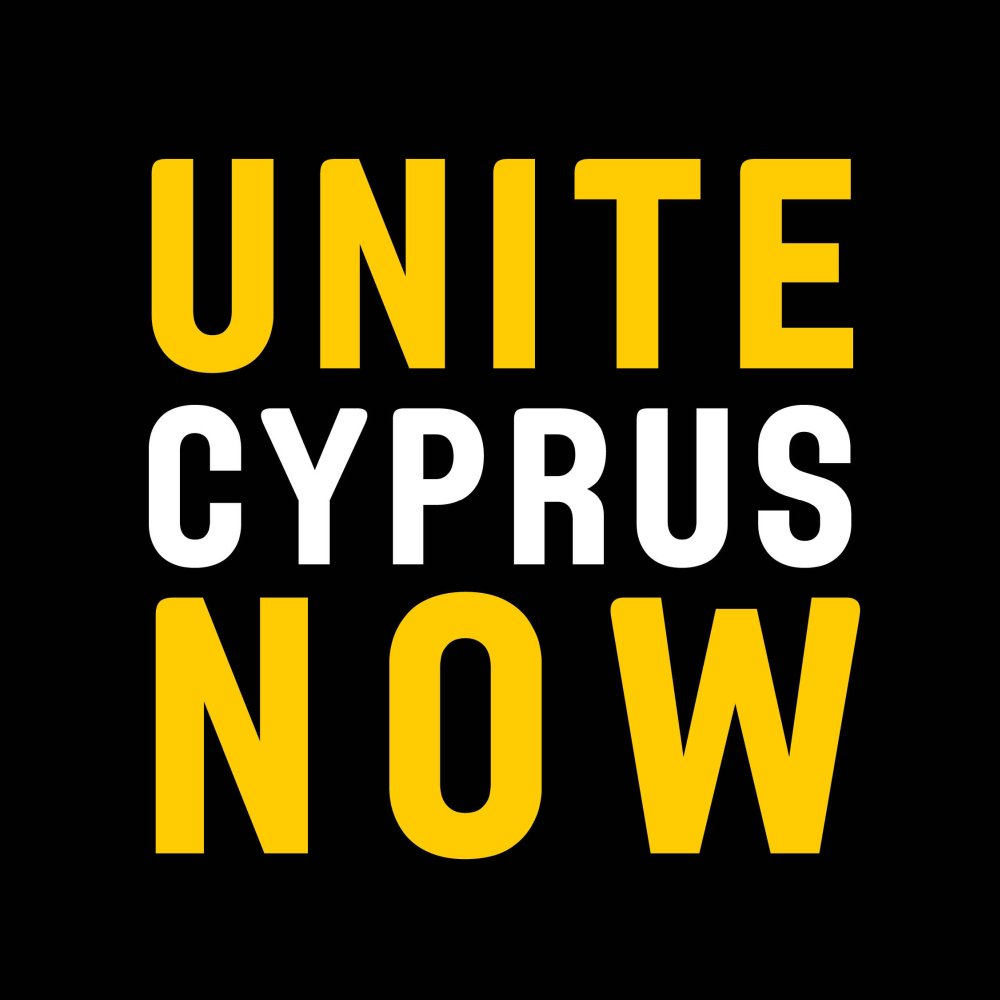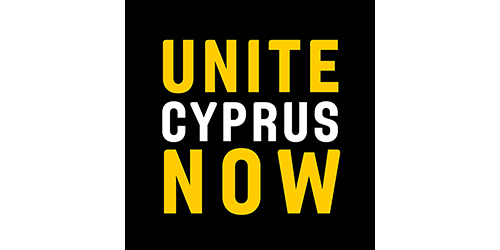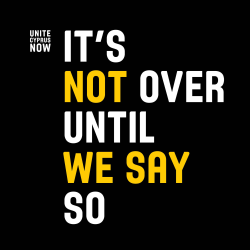ASKED QUESTIONS
We support a federal settlement that will be negotiated and agreed by both sides.
We believe that while a political settlement is an absolute necessity, real peace can only come when Cypriots face their past, accept their share of responsibility in past sufferings, and see each other as partners regardless of their communal background. This is why we need specific actions aimed at reconciliation, overcoming prejudices and building trust.
A federal Cyprus with one single sovereignty, one single citizenship, one single international personality, and with political equality is the way for peaceful coexistence in Cyprus, where Turkish and Greek Cypriots can enjoy the advantages of a united, stable, prosperous European Union country, without one dominating the other; while at the same time, they have a degree of self-government and protection of their communal identities. It is a tried and tested means to handle differences and power struggles that are likely to occur between ethnic groups in a unitary system.
The prospect of federalism in Cyprus has arisen on the basis of historical facts. Throughout history, the larger Greek Cypriot community viewed numerical majority as political superiority and believed that it has the right to decide on the future of the island. The Turkish Cypriot community, on the other hand, rejected being the minority and insisted it also has a say. The confict in Cyprus was not based on ethnic differences or hatred but on the question of ‘who has sovereignty’ and therefore who can decide on the future of the island. At the end of the day, neither Greek Cypriots were able to become the sovereign power determining the future of the whole country, nor Turkish Cypriots were able to become recognized as a people with the right of self-determination. The failure of the quests of both communities has led to the conclusion that federalism is the most ideal solution for Cyprus. This is why federalism has been the main framework of all solution talks in Cyprus.
The European Union itself is shaped in a federal spirit in which certain powers are delegated to EU organs. Federalism is currently implemented in various democratic countries including Switzerland, Belgium, Germany, USA, Canada, Australia and many others.
A bizonal bicommunal federation is endorsed both by the UN Security Council and the EU. It ensures the four freedoms of the EU – namely the freedom of movement of people, goods, services and capital. The EU representatives have been present in the negotiations since 2015 to ensure that the final agreement is in line with EU values, EU acquis (rules and regulations) and protects the universal human rights and freedoms. Throughout the negotiations, both sides maintained their agreement that the principles on which the European Union was founded would be respected.
UCN is not against any political solution as long as it reunites Cyprus and is acceptable to both sides. Current research shows that while a unitary state is preferable to many Greek Cypriots, only a small number of Turkish Cypriots regard it acceptable. In the same vein, research shows that the majority of Turkish Cypriots prefer two separate states on the island. And this is not acceptable to most Greek Cypriots.
If we genuinely want to live in peace, we have to go for the model that is acceptable to both sides, which is currently a federation.
We disagree.
We believe that past failures are due to a number of very specific issues:
- Lack of commitment of either one or both leaderships. A peace agreement requires commitment from both parties.
- Lack of involvement of civil society in the process at various levels. All processes until now followed a top-down approach. We know from other conflicts that involving civil society actively in the negotiations and in peacebuilding on ground significantly increases the prospects of a solution.
- Lack of confidence building measures that would help overcome prejudices as a means to build trust and empathy for a joint future. UCN believes that obstacles in front of all educational, cultural, social and economic cooperation between the two sides should be lifted pending a solution so that the communities on the island can relearn living and working together.
- Continued poisoning of generations. School curricula that still incite hatred and enmity and divergent narratives across generations have also made it impossible for many Cypriots to envisage a common future. The curricula and books need to change to teach our children of Cyprus’ common past, common mistakes, and breed a culture of peace and coexistence.
Yes, UCN strongly supports the Guterres Framework. The framework is a result of in-depth conversations with all the parties and it as a balanced document that takes into account all the sensitivities. The Guterres Framework is not a final document, it is a framework for bridging the remaining disagreement of the sides.
Yes. The two sides achieved “unprecedented progress” during the latest negotiations process as noted by the UN Secretary General and were very close to finalising a deal at Crans Montana. As the UNSG report dated 28 September 2017 states:
“By the time the Conference closed, the sides had essentially solved the key issue of effective participation. While some differences remained on the equivalent treatment of Turkish nationals with regard to the issue of free movement of persons, they were a question of certain details rather than principles. An incipient agreement was also emerging on territorial adjustment. With regard to property, the sides had agreed in principle on two separate property regimes, while some details again remained. Finally, the participants had significantly advanced in developing a security concept, on the assumption that agreement was reached on all domestic aspects of the settlement to the satisfaction of both communities.”
“It is my assessment that, thanks to the tireless and determined efforts of the leaders and their teams and the unwavering support provided by the international community, the essence of a comprehensive settlement to the Cyprus problem is practically there. The parties had come close to reaching a strategic understanding on security and guarantees, as well as on all other outstanding core elements of a comprehensive settlement. It is therefore my firm belief that a historic opportunity was missed in Crans-Montana.”
In his report to the Security Council, UN Secretary General ultimately holds both leaders responsible for the failure. However, we are not interested in playing the blame game. While we expect the leaders to show real leadership, we also acknowledge the importance of Cypriots, other primary actors as well as the international community to make a positive contribution for future talks to achieve a positive result.
We believe that a united Cyprus, as a democratic, stable, prosperous, modern European Union member state should be free of all political and military control of Turkey and Greece. We should see Turkey and Greece as partners, not enemies and develop positive relations. A solution in Cyprus would also improve relations between Turkey and Greece in a highly unstable region.
No. UCN supports Cyprus. Reunified. Ruled by Cypriots for Cypriots. Our allegiance is towards the people of Cyprus. We acknowledge that both Turkey and Greece are important countries for Cypriots for cultural, historical and sociological reasons. Unfortunately both Turkey and Greece committed crimes against the people of Cyprus and only a solution can create the right conditions for future cooperation, progress and stability in the region.
The only way Cyprus will be free is through a solution.
The solution of the Cyprus problem and reunification under a federal model secures a free and independent Cyprus within the EU.
Those who only call for a “free Cyprus” need to explain to the people how they envision achieving this. In a rapidly changing world we cannot waste time chasing empty slogans or unrealistic rhetoric.
We are protesting and fighting against the status quo. A united, federal Cyprus is the only way to end the status quo. Those who only protest occupation/Turkish troops need to explain to the people how they envision ending this. To repeat: no one on this island has the luxury to waste time chasing empty slogans or unrealistic rhetoric.
Cyprus history has a long list of dark memories, mistakes and crimes committed against humanity committed both by Cypriots and international actors. Some less, some more.
Dwelling on the past has not led us anywhere. Let history become the judge of it in the future. Working for the future is the only way where Cypriots can be empowered to make a difference. Reuniting Cyprus is the best and most meaningful answer to those who have contributed to the division of Cyprus and Cypriots. Unfortunately, Cyprus has a long list of dark anniversaries and this is yet another reason why we must find a solution where we learn from our dark history and not let it be repeated again. We work hard to unite our country where no barbed wire or checkpoints exist on the island, where Cypriots mourn and pay respect to the memories of all those who were murdered or suffered regardless of their communal origin.
On this note, both Turkish and Greek Cypriots need to face their past, accept their share of responsibility in the sufferings, learn from it and move on. Both sides committed horrible crimes against each other. Our country is full of mass graves of innocent civilians. No side can absolve it of these crimes. Truth and apology is what both sides should do.
We are categorically against the division of our homeland. We believe that all Cypriots can coexist together in a united Cyprus.
We are not against protesting the murder of Isaak and Solomou. UCN feels very strongly against the killing of innocent civilians, including Isaak and Solomou. What we are against is the closing of the crossing points during the protest. While we fully respect the right of any person or group to demonstrate peacefully, nobody has the right to prevent other citizens from exercising their legal rights, nor should they have the right to seize power from the competent authorities who have jurisdiction over entry and exit points. We question how a modern, democratic EU state can hand over its authority over crossing points and allow them to be closed. Anyone can understand this can be a dangerous precedent which may lead to arbitrary actions at crossing points.
It is utterly contradictory to empower the division while complaining about it.
UCN believes that the division of our country helps those who committed crimes against Cypriots. Our history is full of dark crimes where innocent Greek Cypriots, Turkish Cypriots and others were hurt. Those incidents have opened deep scars in the hearts and minds of their immediate families and their respective communities.
Thanks to the work of the Cyprus Missing Persons Committee even after half a decade we are still unearthing the remains of hundreds of missing persons from both communities as a proof our dark history.
Those who advocate division of our country, intentionally or unintentionally, should know that they serve the interests of those who committed crimes against innocent Cypriots.
UCN underlines that only with a solution we can move forward for a brighter future. Division means those who committed crimes have won.
We are against all attempts at dividing our country. Closing the crossing points will only entrench the division.
People crossing over the Green Line is a right guaranteed to all Cypriot and EU citizens under the EU’s Green Line Regulation. Plus free movement is one of the basic human rights and freedoms.
If we genuinely want a united country, if we want to create conditions of mutual understanding, contact, dialogue and cooperation should be encouraged and crossing points defended at all costs.
It is not a coincidence that those who advocate the closing of the crossing points are also strongly opposed to a federal solution. We would like the people of Cyprus to be aware that the groups who themselves claim that our borders are not at the Green Line, by their very actions are creating these very borders and in doing so reveal their true intentions.
UCN is self-funded. All our expenses have been covered by UCN activists themselves out of their own pockets.
UCN has never received any direct financial support from any individual or organization (see update below - 26.09.2018*) . However, it has received sponsorship in kind (ie no money changing hands) as explained below:
The Stelios Foundation generously sponsored ten UCN activists to travel to Crans Montana during the talks there in July 2017 providing free tickets and free shared accommodation. Quip Productions generously provided their video services free of charge during the presidential campaign by recording and editing our interviews of several presidential candidates. All forms of sponsorship were publicly announced for transparency purposes. If we receive any funds in future, we shall announce them.
*Update (26.09.2018): UCN has won Stelios Award 2018 - thus will receive EUR 10,000.
Become a Volunteer
Join us for a better life and beautiful future!



